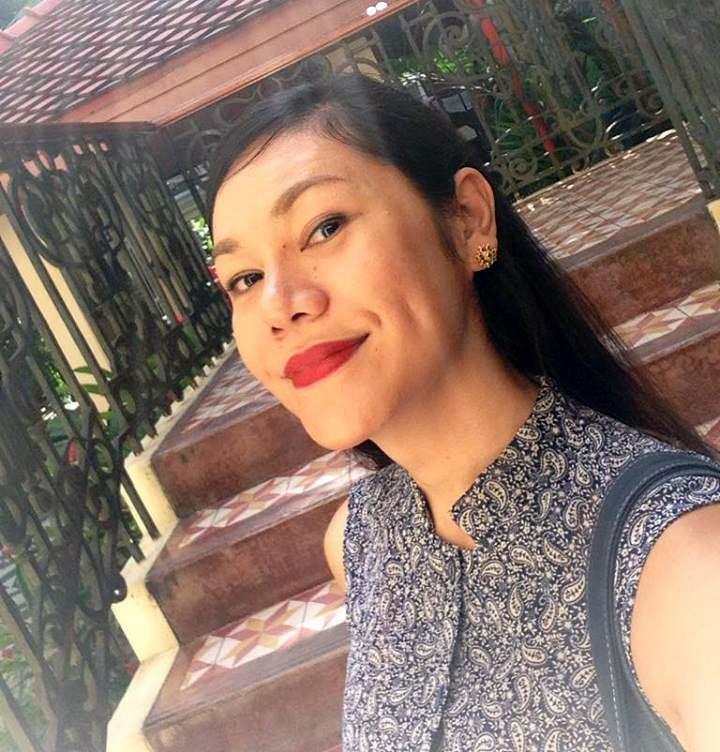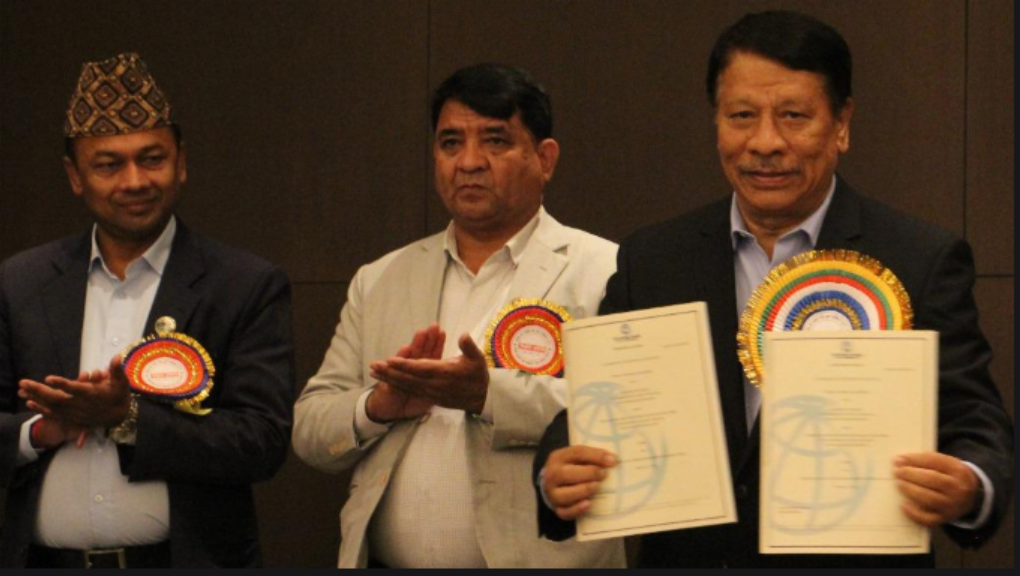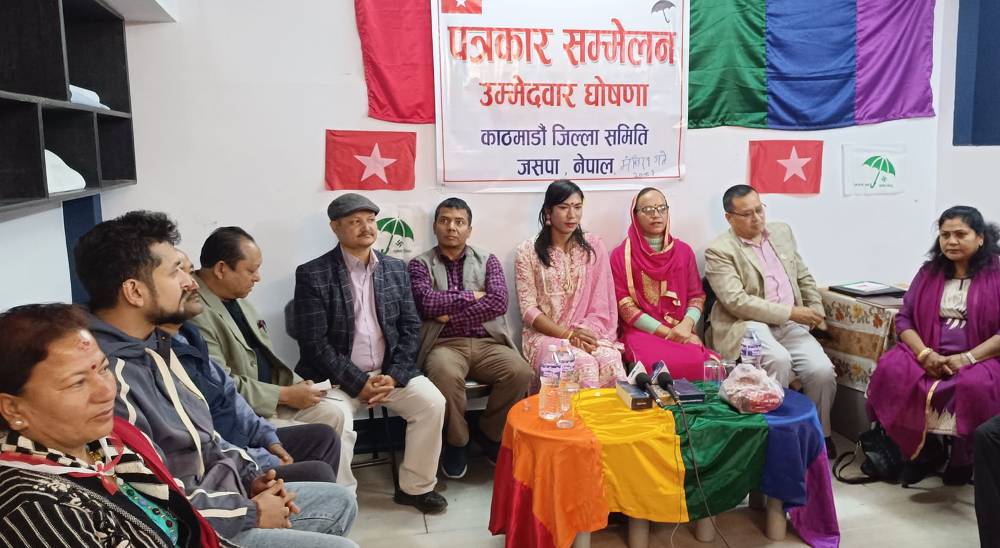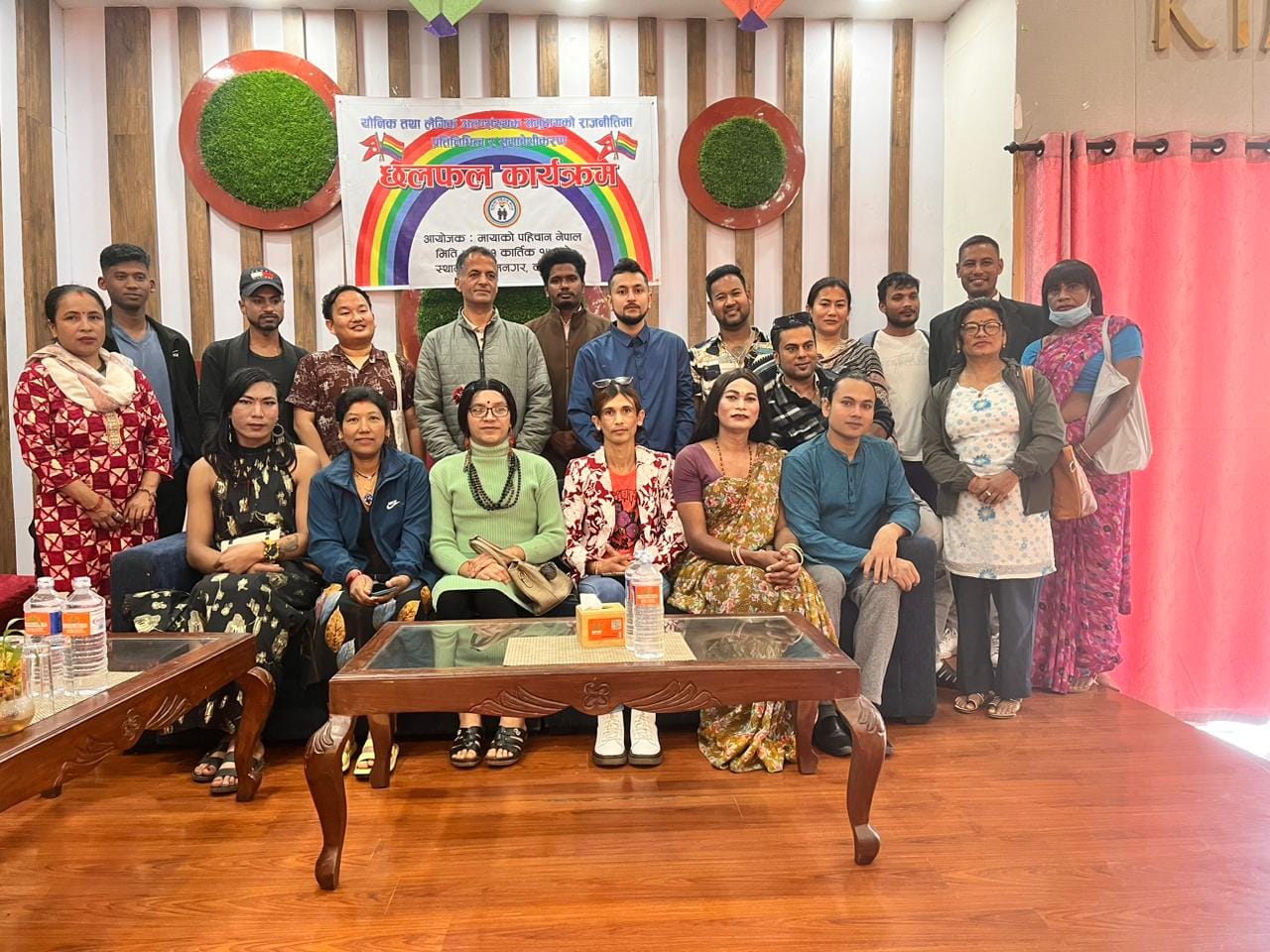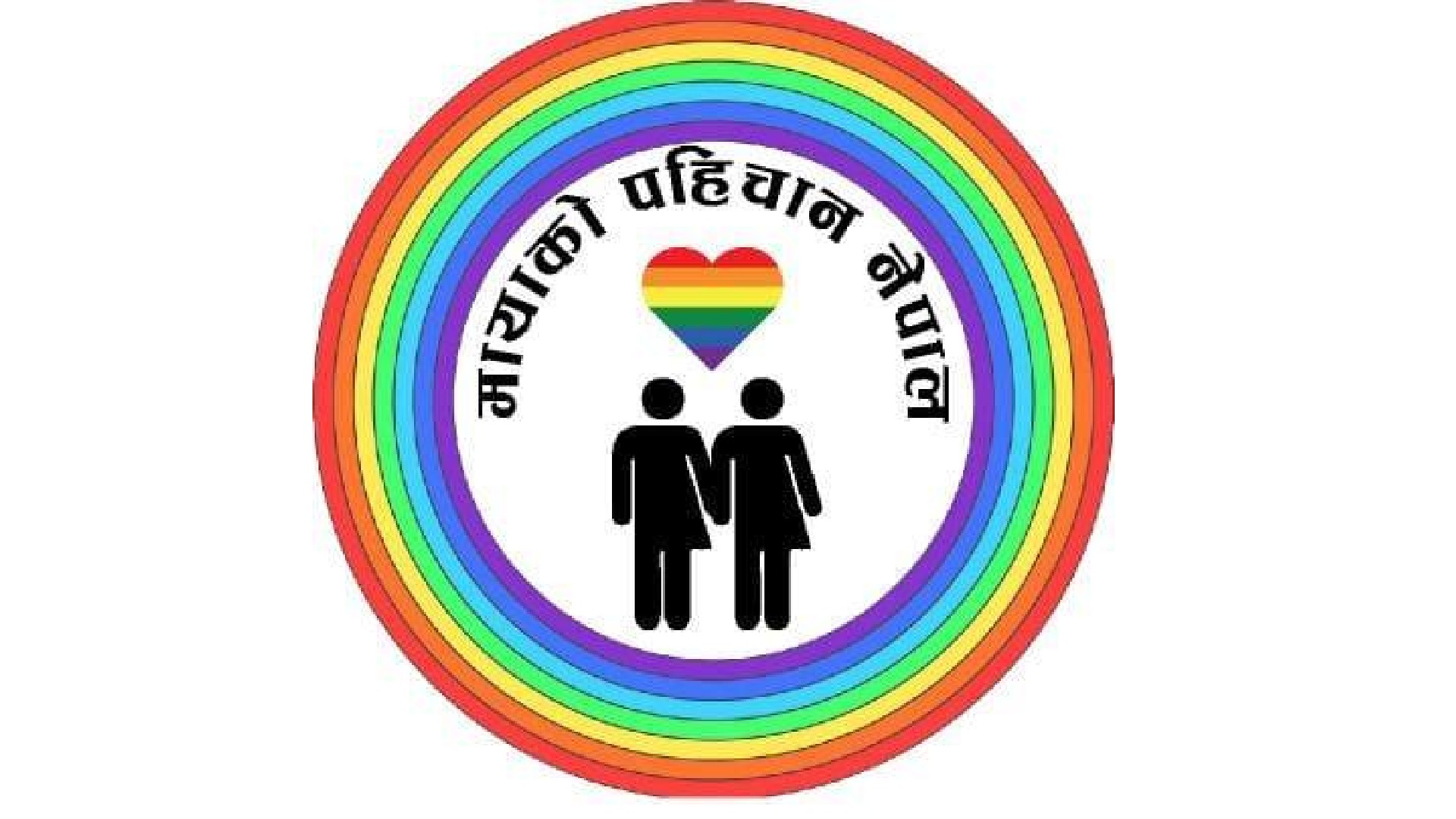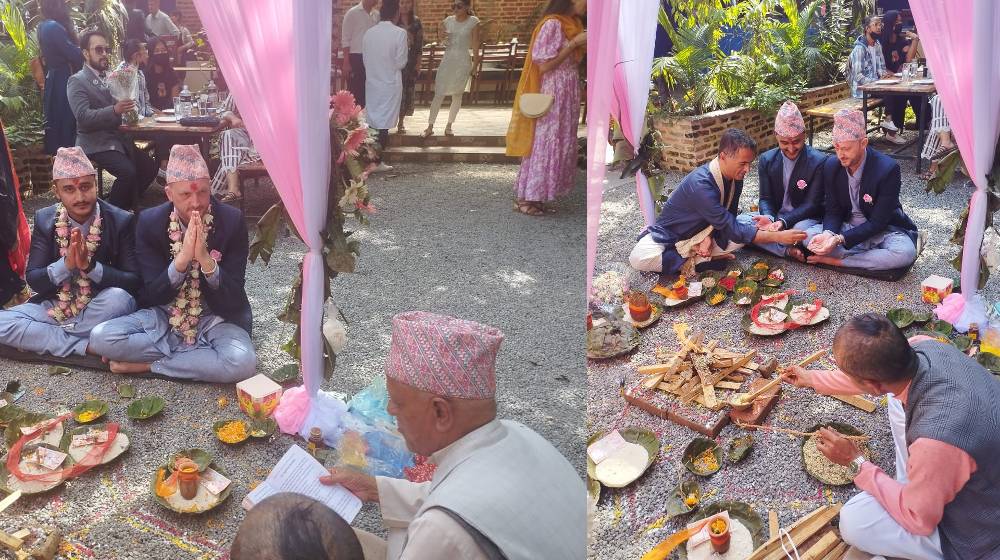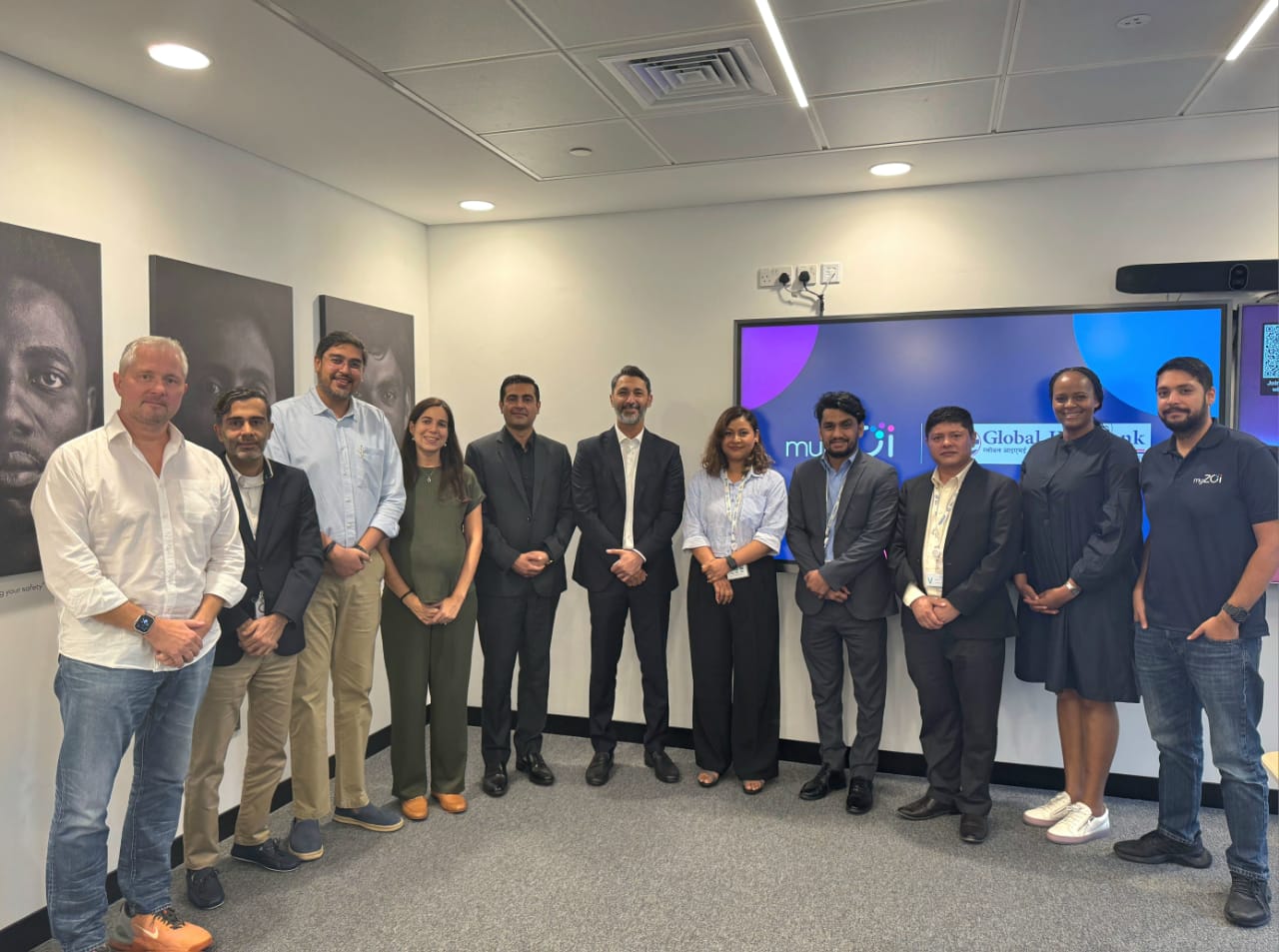
Kathmandu (Pahichan) December 12 – “I always smile, but when it comes to work, when it comes to social issues, I know how to fight. I have to fight because I want to see changes happening in my society”
My name is Prem, I am 38. I was born in Bangkok and I still live here, my family is from this area. I am a researcher and a writer, I get some consultancy work regarding gender issues, I also write some articles and I do translation for magazines like “Attitude”.
My personality is quite complicated, I am a sweet person, but I also have a critical way of looking at society, it doesn’t always go very well with that sweet character of mine! First, when people meet me, they think that I am a sweet person, I always smile, but when it comes to work, when it comes to social issues, I know how to fight. I have to fight because I want to see changes happening in my society.
“Previously, Thailand didn’t have a binary concept of gender”
There is a difference between Western and Asian societies I think, the western societies always talk about the point of coming out, but I never had to come out, because people around me understood me, they understood that I wasn’t a boy, ever since I was really young, even though at school I had to wear the male uniform. So I never had to come out. But I went through the process of improving my femininity, it was little by little that I started to become a woman.
In Buddhism, we have the do’s and the don’t’s, that are written in the Tripitaka, and there is a section about sexuality, and transgender is a concept mentioned in it. Then it depends on how you interpret it, but there are records of it. There are records of homosexual behaviors, and they referred to it as an identity, so we have heard about that. It is perceived as one specific sexual identity, so that’s why in everyday practices, these things already have a place in our mindset, it’s like it’s easier to digest!
Previously, Thailand didn’t have a binary concept of gender. Men and women had the same haircut, there were no female/male hairstyles back in the days. Everyone was wearing short hair because of the hot weather. But around the period of King Rama V (1868-1910), some royal family members started travelling to western countries, they brought back a lot of western values to the Thai society in order to appear “civilized” to protect our nation from colonization, so then, women were supposed to wear long hair for example. Previously, women were walking around without shirts, like men, but in order to appear “civilized”, they had to cover themselves. This is how Thailand learned about the binary opposition of gender roles.
“Parents don’t always know how to treat their transgender children, they don’t go through a training for that, and sometimes it doesn’t come naturally”
All my friends, since primary school always considered me like a girl. My parents warned be little by little that it was going to be hard but I was quite lucky in a sense because my family was never violent with me. At that time, not everyone understood the term “transgender” in the Thai society, and the notions of transgender or kathoey (Thai term for transgender women), were always negative.
I think deep in the heart of the parents who have transgender children, they want their children to have a good future and they want their children to live with dignity. But parents don’t always know how to treat their transgender children, they don’t go through a training for that, and sometimes it doesn’t come naturally. Nowadays we are starting to speak about those kind of issues, but 20 years ago, they didn’t know how to treat transgender children.
“She had that idea that if you are transgender, there is only one option for you in your future, you can only be a sex worker”
At school I had to wear the male uniform. At school sometimes it’s kind of hard because teachers don’t know how to treat transgender students either. But they appreciated the way I was trying to keep myself in the good track.
During class break, students have to move from a classroom to another, and everyone is walking together and making noise. One time I remember, the teacher found out that I was making noise, and the noise I was making was feminine, and the teacher came to me and asked me: “do you want to be a sex worker in the future?” She had that idea that if you are transgender there is only one option for you in your future, you can only be a sex worker. I was wondering “why do I have to be a sex worker?” I had just screamed, a lot of children were screaming during the class break!
“A lot of my friends transformed back to men, because they were afraid of employment discrimination”
As an adult, it was hard to search for an appropriate job. That is the main barrier. When I started studying at the university I started my hormones treatment. It’s a challenge because you have to cope with the effects of the chemicals and the hormones. You have to make a lot of efforts, not only about your physical appearance but also about your manners. If physically you are beautiful but you don’t have the proper manners, like Thai women are supposed to have, then people are not going to accept you the way you want them to. Oh my god this is a big challenge!
And then, there is graduation. At graduation, a lot of my friends transformed back to men because they were afraid of employment discrimination. It made me feel very bad. I couldn’t handle that. I couldn’t get it into my mind that I had to be a man to apply for a job.
During my graduation ceremony I had to wear the male uniform and hide my hair, that was terrible! It was supposed to be the day when I could feel proud of myself, but I couldn’t feel proud because I had to dress up as a man. I didn’t want to go to the ceremony but my mom wanted me to go. We receive our certificate from the hands of the royal family so it is really important in this country and this culture and at that moment they take official pictures. So in every house, parents are proud to hang up the picture of their graduated child, that’s why my parents wanted me to go. But for that I had to change my identity. It didn’t make me feel proud, it made me feel bad. But you have to give that prize to your parents.

“We want gender recognition”
In the everyday life, like on the streets, there is not so much harassment or physical violence compared to other countries. But in terms of policy, there are a lot of obstacles for transgender women. Also in terms of legal framework. For instance, we still can’t legally change our gender on our ID cards. Right now the LGBT community is asking for same sex marriage in Thailand. I was on that panel advocating for same sex marriage but for me if I am in a relationship with a man, I will not consider my relationship to be a same sex relationship. If I date a man we don’t have a same sex relationship, because I am a woman and my partner would be a man. If I can only have same sex marriage I will not do it. I talked to the media that in parallel to same sex marriage we need to advocate for the transgender community, because we want gender recognition. Now, if you don’t have gender recognition, every time you need to make an official contact, at the bank, with the government, you face the same problem.
Nonetheless, things are changing in a positive way a little bit. Transgender women can be themselves even at work, some companies have put in place equal employment opportunities policies but it’s still a very small percentage of transgender women who can be themselves and get hired for a good position.
It is also very hard for transgender to access the educational system, because some of them don’t get support from their family. Some of them have to run away from home in order to maintain their identity. Some parents feel ashamed when their children turn out to be transgender or even have an effeminate character. So if they want to go further, start dressing as a woman or go further in their sexual transition, they have to run away from home, and that has a negative effect on their financial situation, and thus on their education. Many of them end up working in the sex industry or even as drug dealers, and in this context it is hard for them to maintain themselves in the educational system.
That’s why the prevailing image in our society about transgender is that they are all sex workers. It happened to me at school, and it still happens to me to this day. I work, I am a researcher and everyone knows that I have a good brain, but it still happens. I even get verbal harassment sometimes.
“Transgender women are often excluded from the feminist movement, because feminists feel that transgender women are not women”
I respect women, I respect feminists, but I would like to point out at the gap that I have seen: a lot of women judge transgender women and say that they are not feminine enough to be part of the “women” category, that they still have male characters. There is that kind of ideal of what a woman should be, it is still in the mindset of a lot of feminists. Transgender women are often excluded from the feminist movement, because feminists feel that transgender women are not women, so if you want to be included, you have to be a cisgender woman. There is this sort of checklist of what makes you a “real, 100% woman”. We should think about using the term “person who uses femininity/masculinity” or something like that to define a person. So you can include all the people who use femininity under the same category and under the same movement.
What I would like to tell women is that including trans women into the women’s group/movement is very important, whether you consider them as women or people who use femininity, because we share the same experience of patriarchy, so we’re supposed to be partners. There are plenty of situations where we are supposed to support each other. You have to hear the voices of different kind of women: listen to trans women, listen to sex workers, listen to women who use drugs, listen to all of us. Sometimes we feel invisible in the fight to advance the cause of women.
Sometimes I get backlash from the transgender community. Even if I didn’t end up working in the sex industry, as my teacher had predicted, I still try to understand them. But sometimes they doubt that I am on their side. However, I am still a transgender woman, and my life is not that secure because, like them, I don’t have gender recognition. Our laws and policies don’t protect me neither, I am in the same situation than them. I do want people to understand that not all transgenders are sex workers, but it doesn’t mean that I am against transgender sex workers.
“How much do I have to hold the same values as cisgender women? How much do I have to maintain the identity that I have related to the transgender community?”
When I did my master’s degree in social development, the topic of my thesis was about showgirls working in cabarets. At that time I used the term “kathoey” instead of the term “second type of girls” which the media used to portray transgender women. But my key informants, even if they raised very interesting issues, didn’t have a high education to use that kind of terminology, and anyway, who is supposed to be the “first type of women”? And why do we have to be the “second type”? So that’s why I used the term kathoey. And I feel very proud that in this conservative culture and society of Thailand, I can put the term kathoey in the title of my thesis. I was trying to advocate for the term kathoey to be a particular gender, and I called myself kathoey.
But now I use the term transgender women. Previously I was working in a UN agency, if I had presented myself as kathoey, my colleagues would not have accepted me, so I had to stop calling myself kathoey. I needed to find another way to present myself in front of my colleagues, also because I was a supervisor and my team would not have accepted to be supervised by a kathoey.
Sometimes I have to think a lot about myself, this is a barrier, how much do I have to hold the same values as cisgender women? How much do I have to maintain the identity that I have related to the transgender community? I have transgender friends, how much do I have to maintain the same identity as them? And how much do I have to present myself as a professional woman in order to group myself with the other professional women?
I think if we get gender recognition it will change a lot of things for us. If we can officially have not just two genders, men and women, but a new particular gender for us, if we can have a policy and official documents, the concept of transgender can spread to the rest of society.
If you want to be included into the women group, somehow you have to spend a lot of money to access the medical technology in order to transform your body. At my age, I made a choice, I spent a lot of money in order to transform myself. I wanted to do it, I wanted to look like I look now. But it was not only a personal choice, it was also a decision taken in reaction to the pressure society put on me, it was a way to fit in. It’s a mix of both of those things that made me do that. Society shapes you.

“You have to think about yourself as a human being”
I would like to encourage little girls to stay in the good track, and one day they will see the light at the end of the tunnel. At that age I couldn’t see the light at the end of the tunnel. People keep talking in your ears, it’s like a bad echo whispering “sex work sex work sex work”, but I tried to keep myself in a good track. It can also be so much pressure if you always think “I am transgender, I have to be a good person”, you always have to keep yourselves out of troubles, but you have to think about yourself as a human being. You have to believe that you are one of the human beings, one of the members of society, one of the citizens, one of the family members. Believe, and keep yourself in a good track. Everybody can be the successful one.
Copy : https://universelles.net


